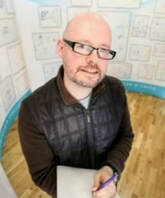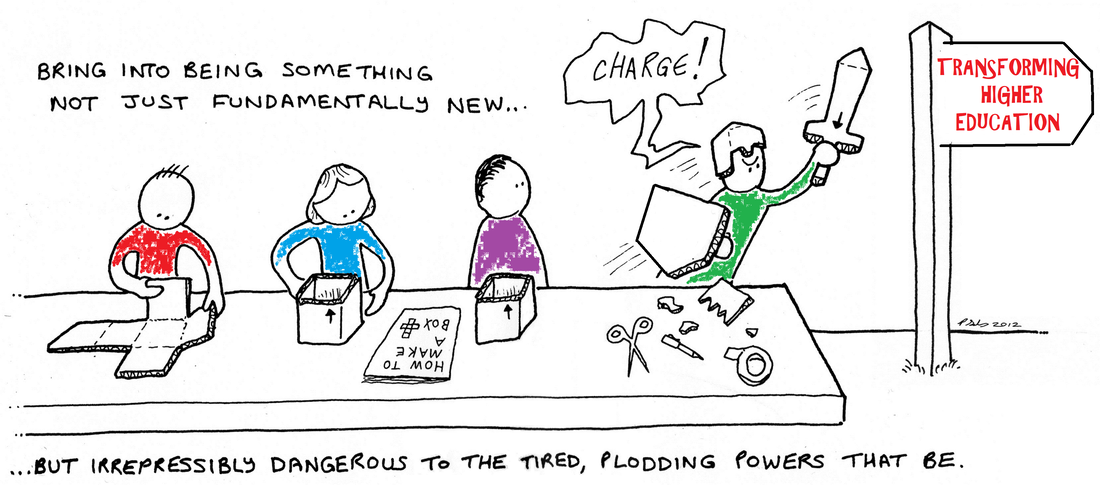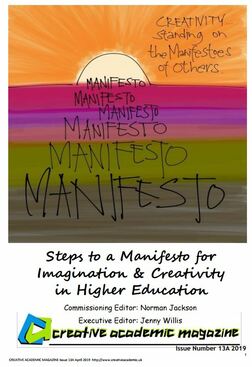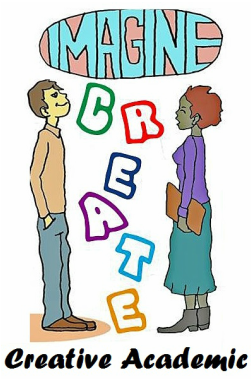
All journeys begin with one step but we began our journey with 7. The first was to commit to an open public discussion aimed at giving meaning and substance to the idea. The second was to gather together a small band of people who cared enough about the idea to try to turn it into a reality. The third was to create some questions and some information resources1 to engage people and encourage discussion. The fourth was to encourage more people to join the discussion and the co-created conversation is preserved on the #creativeHE facebook page2 and curated in CAM#13A.
Four weeks into our conversation we reached the fifth step. We invited participants to create their own manifestos to share the values, beliefs, propositions and principles that underlie their own creative practices and ways of seeing creativity in their own lives. Over two weeks we received over 20 personal manifestos, mostly published in the facebook forum but others published in more adventurous ways (e.g. slowly on twitter). We promised to curate these in the magazine and this issue honours that promise.
The sixth and most challenging step was to create and discuss an overarching manifesto. Obviously there are many ways of constructing a manifesto but Paul Kleiman stepped in to provide a solution. His rhapsodic manifesto written in verse and inspired us to invite Paul to be the architect of the overall manifesto and he undertook to draw from the personal manifestos important and meaningful ideas which he crafted into new verses. At the start of World Creativity and Innovation Week we published our draft manifesto in this magazine,( the production of which was our seventh step), recognising that it can only ever be provisional and we continue to discuss the myriad of ideas and meanings it contains.
Four weeks into our conversation we reached the fifth step. We invited participants to create their own manifestos to share the values, beliefs, propositions and principles that underlie their own creative practices and ways of seeing creativity in their own lives. Over two weeks we received over 20 personal manifestos, mostly published in the facebook forum but others published in more adventurous ways (e.g. slowly on twitter). We promised to curate these in the magazine and this issue honours that promise.
The sixth and most challenging step was to create and discuss an overarching manifesto. Obviously there are many ways of constructing a manifesto but Paul Kleiman stepped in to provide a solution. His rhapsodic manifesto written in verse and inspired us to invite Paul to be the architect of the overall manifesto and he undertook to draw from the personal manifestos important and meaningful ideas which he crafted into new verses. At the start of World Creativity and Innovation Week we published our draft manifesto in this magazine,( the production of which was our seventh step), recognising that it can only ever be provisional and we continue to discuss the myriad of ideas and meanings it contains.

In choosing an image for the cover of this issue I remembered a cartoon that the illustrator Patrick Sanders had drawn for me over a decade ago. Sadly, Patrick died in 2017 at the very early age of 41. But his spirit lives on in the memories we have of being with him and in his body of work. So a decade after he used his imagination and creativity to create this cartoon it seems entirely appropriate to place it alongside our collection of personal manifestos. I’m sure he would say that this would be his own manifesto for encouraging higher education to do more to encourage and enable students to use their imagination and creativity.
I took the liberty of tinkering with the illustration to make it even more meaningful for our purpose and I know Patrick would have approved. This cartoon says it all. A manifesto is about having the confidence to stand up for what you believe and using your beliefs to drive forward actions that carry you towards realizing your ideals. In a very real sense those who believe in this manifesto are doing battle with a corporate world that values efficiency and profit over the fundamental purpose of education.
Emerging from our conversations was the transformative idea that higher education needs a concept of imagination and creativity that puts it at the very heart of students’ learning experiences and the moral purpose of education. It seemed to many of us involved in the conversation that ‘Transformation’ NOT ‘Originality’ is the core concept for a definition of creativity that education can appropriate for itself. After watching a TEDx talk by Greg Bennick4 I extended the definition he used and offer it as a starting point for discussion.
“creativity is the process through which we take elements of [ourselves and] the world around us and transform them into something new that reflects what we want what we need what we can imagine [and in that process we transform ourselves]”
Having taken our initial steps, our hope is that many more steps will be taken, not just by those contributing to the discussion, but by everyone who is inspired to do more. Our discursive process remains open as does our invitation to contribute your personal manifesto to our community forums on facebook2 and linked in3.
You can download our manifesto at:
http://www.creativeacademic.uk/manifesto.html
Norman Jackson
Commissioning Editor & Discussion Leader
Links
1 http://www.creativeacademic.uk/manifesto.html
2 https://www.facebook.com/groups/creativeHE/
3 https://www.linkedin.com/groups/8755256/
4 Greg Bennick TEDx talk Creativity and Transformation https://www.youtube.com/watch?v=dnchjo8J8fg
Emerging from our conversations was the transformative idea that higher education needs a concept of imagination and creativity that puts it at the very heart of students’ learning experiences and the moral purpose of education. It seemed to many of us involved in the conversation that ‘Transformation’ NOT ‘Originality’ is the core concept for a definition of creativity that education can appropriate for itself. After watching a TEDx talk by Greg Bennick4 I extended the definition he used and offer it as a starting point for discussion.
“creativity is the process through which we take elements of [ourselves and] the world around us and transform them into something new that reflects what we want what we need what we can imagine [and in that process we transform ourselves]”
Having taken our initial steps, our hope is that many more steps will be taken, not just by those contributing to the discussion, but by everyone who is inspired to do more. Our discursive process remains open as does our invitation to contribute your personal manifesto to our community forums on facebook2 and linked in3.
You can download our manifesto at:
http://www.creativeacademic.uk/manifesto.html
Norman Jackson
Commissioning Editor & Discussion Leader
Links
1 http://www.creativeacademic.uk/manifesto.html
2 https://www.facebook.com/groups/creativeHE/
3 https://www.linkedin.com/groups/8755256/
4 Greg Bennick TEDx talk Creativity and Transformation https://www.youtube.com/watch?v=dnchjo8J8fg
| Creative Academic Magazine #13 A & B contains the dscussion papers, summaries of discussions. personal manifestos and the overarching manifesto You can download it here |



 RSS Feed
RSS Feed
